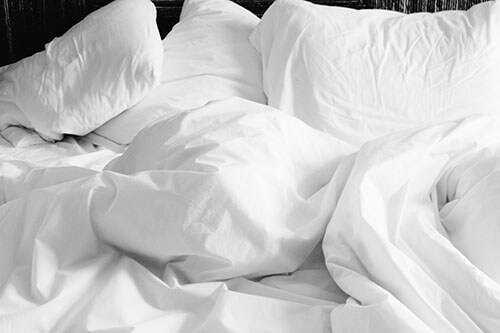Obstructive Sleep Apnea Diagnosis

What is obstructive sleep apnea?
Frequently Asked Questions
- During sleep, the muscles of the upper throat relax, leading to collapse and blockage of the upper airway
- Obstruction of the airway reduces airflow and affects breathing patterns in sleep
- Disrupted breathing in sleep can be associated with snoring sounds
- Obstructive sleep apnea impacts sleep quality and can lead to daytime tiredness
Symptoms of sleep apnea include:
- Unrefreshing sleep
- Daytime tiredness
- Loud snoring
- Pauses in breathing during sleep
- A sleep study is performed to measure breathing at nighttime
- This can be done at home or in the sleep laboratory
- The goal of sleep apnea testing is to measure pauses in airflow during sleep.
- An In-lab sleep study includes multiple sensors that measure heart rate, brain activity, breathing effort, air flow, arm and leg movements, and oxygen levels. These measures are used to evaluate many aspects of breathing during sleep.
- A home sleep study is a kit that is taken home and estimates sleep apnea severity.
- Apnea Hypopnea Index (AHI) is one measure of sleep apnea severity that is commonly used. It estimates the number of times per hour that airflow stops or is reduced.
- Normal: AHI < 5
- Mild apnea: AHI 5-15
- Moderate: AHI 15-30
- Severe: AHI >30
Sleep Testing at UCSF is done through the Division of Sleep Medicine. We work closely with multiple sleep medicine colleagues who provide consultation, testing, and management of medical treatments for all forms of sleep apnea.
We partner with sleep labs across the San Francisco Bay Area. If you are interested in having a sleep study done closer to where you live, please contact us for a list of providers.
- CPAP
- Oral Appliance
- Sleep Position
- Weight Management
- Surgery
- Sleep surgery is an option for someone who cannot use other forms of treatment for sleep apnea
- Surgery for sleep apnea is second-line therapy after trying CPAP
See Surgery for Sleep Apnea and Snoring
- Start with testing for sleep apnea with a sleep study
- Try using a non-surgical method for sleep apnea treatment (typically CPAP or an oral appliance)
- If non-surgical treatment does not work, obtain an evaluation with a sleep surgeon to discuss your options
- Evaluation for sleep surgery is individualized and depends on many factors about your sleep and medical history and exam
- You will need a copy of a recent diagnostic sleep study preferably done within the last 3 years (full study report)
- A referral from you primary care or sleep medicine provider
- Notes from your provider forwarded to the office
- Complete the sleep surgery intake form prior to your visit
